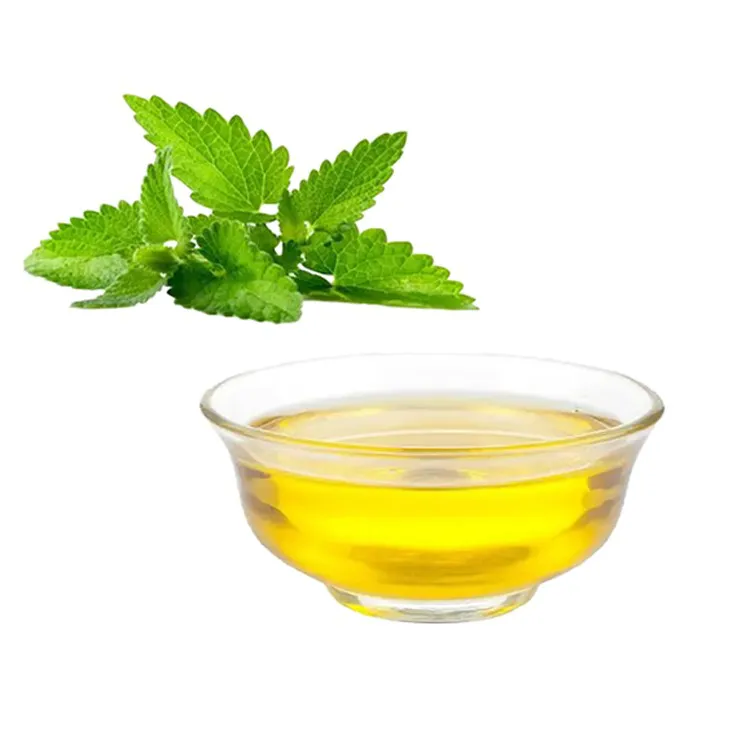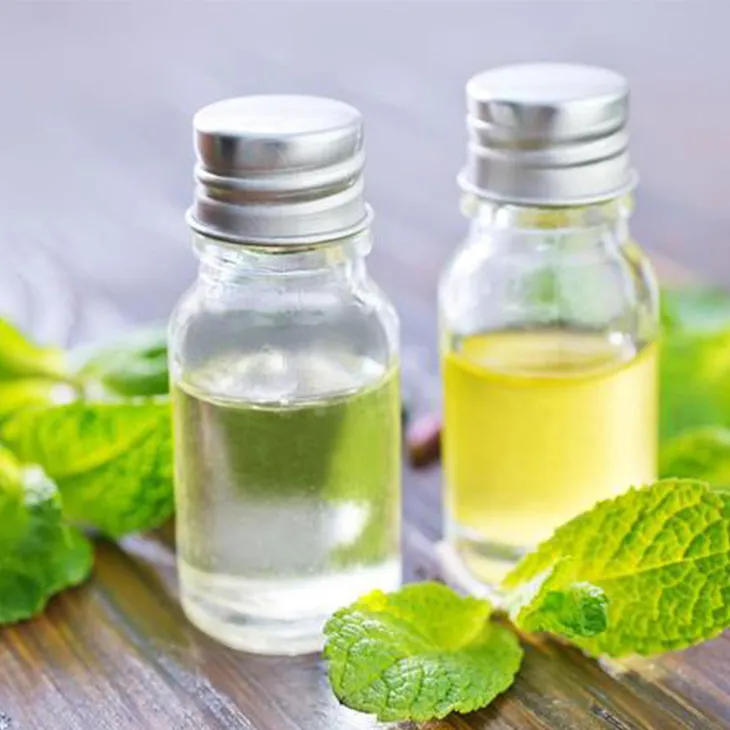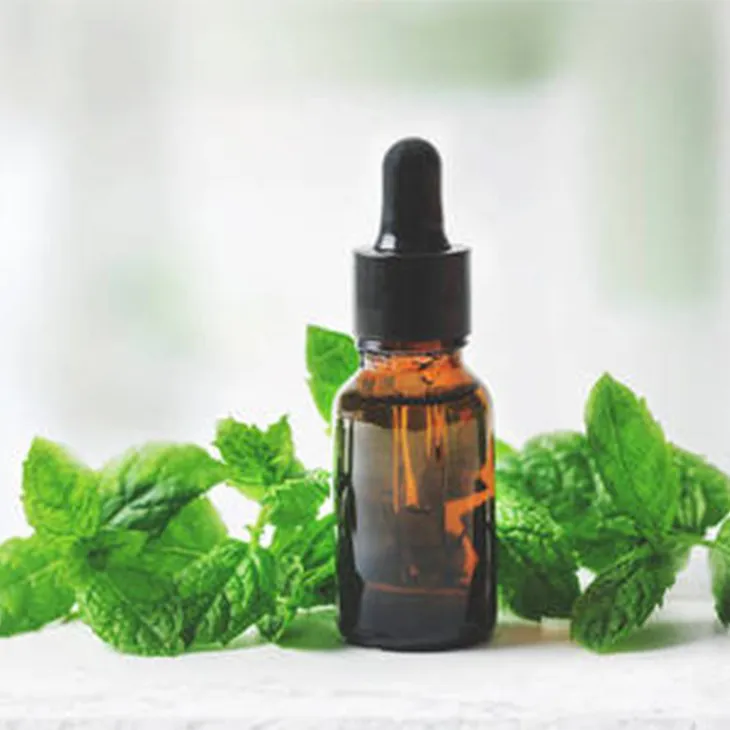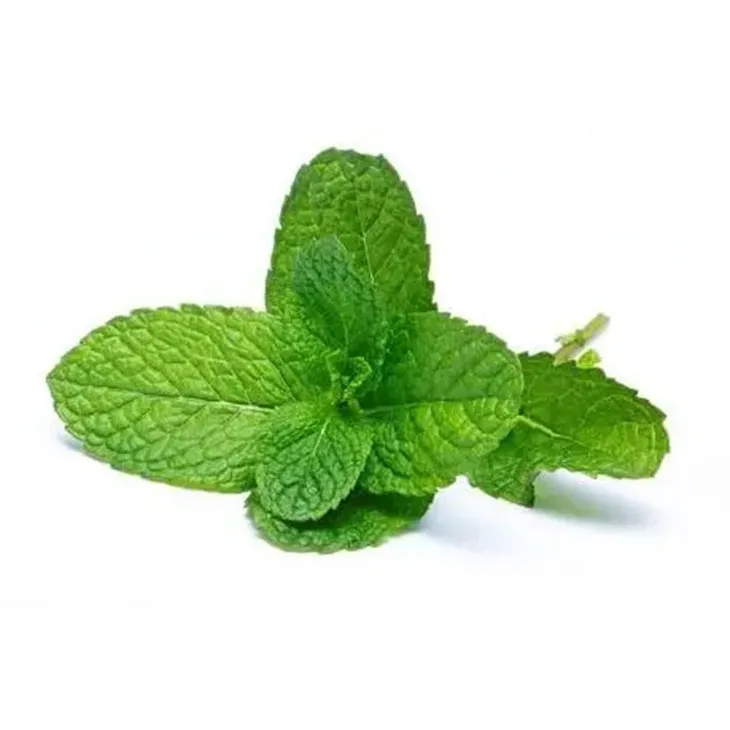- 0086-571-85302990
- sales@greenskybio.com
All the benefits of peppermint oil.
2024-11-14

Benefits for the Immune System
Peppermint Oil is well - known for its positive influence on the immune system. It contains certain compounds that strengthen the body's natural defenses, enabling the body to better combat various diseases. For instance, it has antimicrobial properties which can help in fighting off harmful bacteria, viruses, and fungi. This is crucial as our immune system is constantly exposed to these pathogens in our daily lives. By using Peppermint Oil, whether through inhalation, topical application, or ingestion in a diluted form, we can give our immune system an extra boost.

Skincare Benefits
Peppermint Oil is a versatile ingredient in skincare as it is suitable for all skin types.
Moisturizing Dry Skin
For those with dry skin, peppermint oil can work wonders. It helps to lock in moisture, preventing the skin from becoming overly dry and flaky. The oil penetrates the skin layers and provides a nourishing effect, leaving the skin feeling soft and supple.
Controlling Oil on Oily Skin
On the other hand, for people with oily skin, peppermint oil can be a great solution. It has the ability to control sebum production. Sebum is the natural oil produced by our skin glands. Excessive sebum can lead to clogged pores and acne. Peppermint oil helps to regulate this production, keeping the skin's oil levels in check and reducing the likelihood of breakouts.
Soothing Irritated Skin
When the skin is irritated, perhaps due to environmental factors like pollution or excessive sun exposure, peppermint oil can offer relief. It has anti - inflammatory properties that can calm the skin, reducing redness and irritation. It can also be used to soothe minor skin abrasions or insect bites.

Benefits for the Circulatory System
Peppermint oil plays an important role in promoting a healthy circulatory system. It promotes blood circulation, which has far - reaching benefits for overall health.
Improved blood circulation means that oxygen and nutrients can be more efficiently delivered to all parts of the body. This is essential for the proper functioning of organs and tissues. For example, it can help in maintaining healthy muscles, as they receive an adequate supply of oxygen during exercise or normal daily activities.
Furthermore, better blood circulation can also assist in the removal of waste products from the body. These waste products, if not removed properly, can accumulate and cause various health problems. By enhancing circulation, peppermint oil helps the body to cleanse itself more effectively.

Uses in Cooking
Peppermint oil can also be used in cooking, albeit in small amounts. When added to dishes, it imparts a unique flavor that can transform the taste of a meal.
- It can be used in baking, for example, in making peppermint - flavored cookies or cakes. The refreshing taste of peppermint adds a new dimension to these sweet treats.
- In savory dishes, a drop or two of peppermint oil can be added to certain sauces or dressings. It can provide an unexpected and delightful flavor contrast, especially in dishes that feature fruits or vegetables.
- Peppermint - flavored beverages are also popular. A small amount of peppermint oil can be used to make peppermint tea or added to other cold drinks for a refreshing twist.
Besides enhancing the flavor, when used in cooking, peppermint oil may also potentially provide some of the health benefits mentioned earlier. However, it is crucial to use it sparingly as it is highly concentrated. Overuse can lead to an overpowering flavor and may even cause some digestive discomfort in some individuals.

Benefits for Digestive Health
Peppermint oil has long been associated with promoting digestive health.
Relieving Indigestion
When we experience indigestion, whether it's due to overeating or consuming certain types of food, peppermint oil can offer relief. It helps to relax the muscles of the gastrointestinal tract. This relaxation allows food to move more smoothly through the digestive system, reducing feelings of bloating, discomfort, and nausea.
Reducing Gas and Flatulence
Peppermint oil also has the ability to reduce gas and flatulence. It acts on the digestive system to prevent the formation of excessive gas. This is beneficial for those who suffer from digestive disorders that often involve excessive gas production, such as irritable bowel syndrome (IBS).
Benefits for Respiratory Health
Peppermint oil can be beneficial for respiratory health in several ways.
Clearing Congestion
When we have a cold or sinus congestion, peppermint oil can help to clear the nasal passages. Inhalation of peppermint oil vapors can cause the blood vessels in the nasal cavity to constrict, reducing swelling and congestion. This makes it easier to breathe.
Soothing Coughs
It also has a soothing effect on coughs. The menthol in peppermint oil acts as a mild anesthetic on the throat, reducing the urge to cough. Additionally, it can help to break up mucus in the respiratory tract, making it easier to expel.
Benefits for Mental Well - being
Peppermint oil has a positive impact on mental well - being.
Reducing Stress and Anxiety
The aroma of peppermint oil has been shown to have a calming effect on the nervous system. Inhaling peppermint oil can help to reduce stress and anxiety levels. It can create a sense of relaxation, which is especially useful in today's fast - paced and stressful world.
Improving Focus and Concentration
On the other hand, peppermint oil can also improve focus and concentration. The refreshing scent can stimulate the brain, making it more alert. This can be beneficial for students during study sessions or for workers who need to stay focused on their tasks.
Benefits for Hair Health
Peppermint oil can also contribute to healthy hair.
Promoting Hair Growth
It has the potential to promote hair growth. When applied to the scalp, peppermint oil can stimulate blood circulation in the hair follicles. This increased circulation provides the follicles with more nutrients and oxygen, which are essential for hair growth. It may also help to strengthen the hair roots, reducing hair fall.
Reducing Dandruff
Peppermint oil has antifungal and antibacterial properties that can be effective in reducing dandruff. Dandruff is often caused by an overgrowth of yeast on the scalp. Peppermint oil can help to combat this overgrowth, keeping the scalp clean and healthy, and reducing the appearance of flakes.
Precautions and Considerations
While peppermint oil has numerous benefits, there are some precautions and considerations to keep in mind.
- Dilution: Peppermint oil is highly concentrated and should always be diluted before use, especially for topical application. Undiluted peppermint oil can cause skin irritation in some individuals.
- Allergies: Some people may be allergic to peppermint oil. Before using it for the first time, it is advisable to do a patch test on a small area of skin to check for any allergic reactions.
- Ingestion: When ingesting peppermint oil, it should be done in a very diluted form and under the guidance of a healthcare professional. Ingesting large amounts of undiluted peppermint oil can be toxic and cause various adverse effects, such as stomach cramps, nausea, and vomiting.
- Pregnancy and Nursing: Pregnant and nursing women should exercise caution when using peppermint oil. It is best to consult a doctor before using it, as there may be potential risks to the fetus or the nursing infant.
FAQ:
Question 1: How does peppermint oil strengthen the immune system?
Peppermint oil contains certain compounds that can stimulate the body's immune cells and responses. These components may enhance the function of the immune system, enabling it to better recognize and combat foreign invaders like viruses and bacteria.
Question 2: Can peppermint oil really help oily skin?
Yes, it can. Peppermint oil has astringent properties that can help control the over - production of sebum on oily skin. It helps to balance the skin's oil levels, reducing the shine and the likelihood of clogged pores.
Question 3: In what way does peppermint oil promote blood circulation?
Peppermint oil has a warming and vasodilating effect. When applied topically or consumed in a proper way, it can cause the blood vessels to dilate, which allows blood to flow more freely and thus promotes blood circulation.
Question 4: How should peppermint oil be used in cooking?
Peppermint oil should be used sparingly in cooking. It can be added to sweet or savory dishes, such as desserts, salads, or soups. Just a few drops are usually enough to impart its unique flavor. However, make sure to use food - grade peppermint oil.
Question 5: Is peppermint oil safe for all skin types?
While peppermint oil is generally suitable for all skin types, some people may be sensitive to it. It is advisable to do a patch test on a small area of skin first. If there is no irritation or allergic reaction, it can be used more widely.
Related literature
- The Health Benefits of Peppermint Oil"
- "Peppermint Oil in Skincare: A Comprehensive Review"
- "Peppermint Oil and Its Impact on the Circulatory System"
- ▶ Hesperidin
- ▶ Citrus Bioflavonoids
- ▶ Plant Extract
- ▶ lycopene
- ▶ Diosmin
- ▶ Grape seed extract
- ▶ Sea buckthorn Juice Powder
- ▶ Fruit Juice Powder
- ▶ Hops Extract
- ▶ Artichoke Extract
- ▶ Mushroom extract
- ▶ Astaxanthin
- ▶ Green Tea Extract
- ▶ Curcumin
- ▶ Horse Chestnut Extract
- ▶ Other Product
- ▶ Boswellia Serrata Extract
- ▶ Resveratrol
- ▶ Marigold Extract
- ▶ Grape Leaf Extract
- ▶ New Product
- ▶ Aminolevulinic acid
- ▶ Cranberry Extract
- ▶ Red Yeast Rice
- ▶ Red Wine Extract
-
Black Garlic Extract
2024-11-14
-
Boswellia Serrata Extract
2024-11-14
-
Astaxanthin
2024-11-14
-
Calendula Extract
2024-11-14
-
Sea buckthorn Juice Powder
2024-11-14
-
Horse Chestnut Extract
2024-11-14
-
Coix Seed Extract
2024-11-14
-
Camu Camu Extract
2024-11-14
-
Red Date Extract
2024-11-14
-
Lycopene
2024-11-14





















